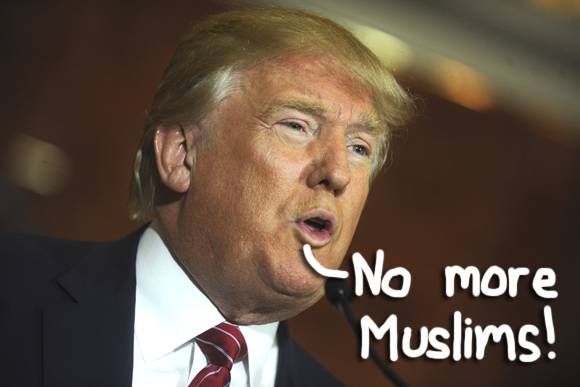As US President Donald Trump and Iran’s Ayatollah Khamenei trade barbs, a nervous Arab World is caught in the middle.
Earlier this week, Iran’s Supreme Leader made headlines thanking Trump for “revealing the true face of America”. While much of Khamenei’s criticism was directed at the administration’s hardline policy and threat to “put Iran on notice”, he zeroed in on the disastrous White House executive order and its impact on refugees, immigrants and visitors from seven majority Muslim countries. At one point, Khamenei said, “Now with everything he is doing – handcuffing a child as young as five at an airport – he is showing the reality of American human rights.”
This news item, the nasty Twitter exchange and war of words between the two leaders brought home the intimate connection between US domestic and foreign policies and encapsulated the dilemma that will be faced by America’s Arab allies in the “Age of Trump”. It reminded me of two stories from the first George W Bush administration – both involving Saudi Arabia’s then Crown Prince Abdullah.
Bush’s callous disregard for the rights of the Palestinians, his administration’s policies which trampled on the rights of Arabs and Muslims in the US, and his disastrous invasion of Iraq severely strained US-Saudi relations. The kingdom, ever cognizant of the important role the US played in providing a security umbrella protecting the Gulf states from the threat of Iran, was at its wit’s end. At one point Abdullah told Bush that if the US persisted in ignoring Arab concerns, Saudi Arabia might feel compelled to go its own way. It was not a step he was eager to take, but it was one born of frustration with US policies and the increasingly high cost they incurred at home.
On election night in 2004, I received a call from a friend of mine who served as an adviser to the Crown Prince. He asked me excitedly whether the news stories he was hearing were correct – that Democratic challenger John Kerry was in a position to beat incumbent Bush. I was surprised and asked why he would be supportive of Kerry. I said, “Kerry has been very critical of Saudi Arabia, while Bush claims to be your friend”. He responded, “I think it is better for us to have a US president who hates us, than to have a US president hated by our people”.
During the last 16 years, US-Gulf relations have been on a dizzying roller coaster ride. First there was the adventurism of the Bush administration – which went from neglect, to destabilising war, to misguided democracy promotion based more on ideology than reality. The Obama administration only compounded Arab frustration.
By 2016, the Arab region was in disarray and the US-Arab relationship was in tatters. Thanks to the foolish Iraq war and its seriously bungled aftermath: That country is in the midst of a long civil war; Iran has been unleashed and emboldened as a threatening regional power; the US military and public are war weary and wary of new conflict; Russia has extended itself into the Middle East; violent extremist movements have found safe-havens and metastasised across the region; and because US allies have felt abandoned they have felt compelled to act on their own to defend their interests vis a vis Iran’s designs.
From its performance, to date, the Trump administration does not appear to be a partner. Trump has spoken forcefully about wiping out extremism and reining in Iran, but he and too many of his advisers have coupled this with ham-fisted anti-Muslim rhetoric and policies that have caused IS and Al Qaeda, and now the Iranian leader to thank him.

No comments:
Post a Comment